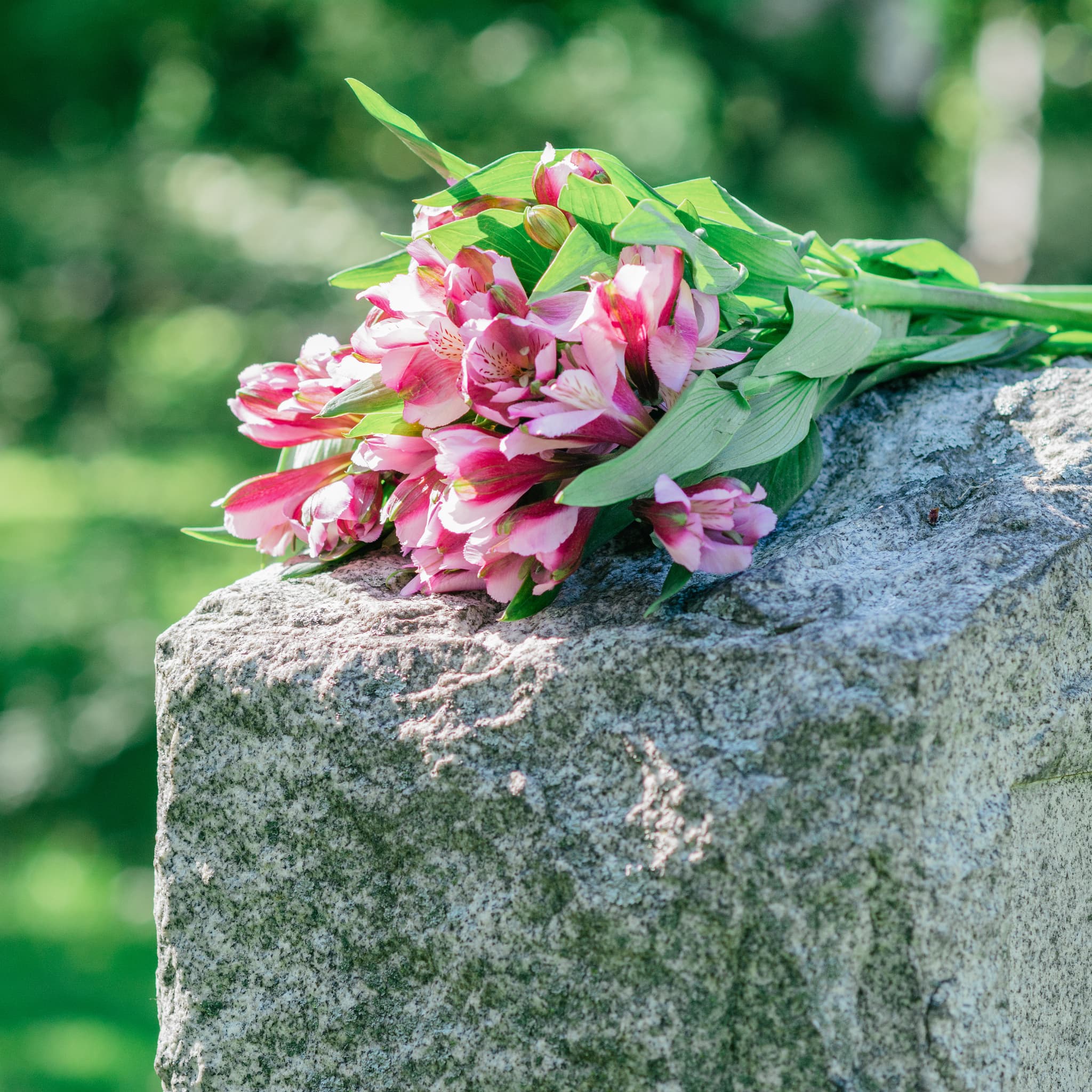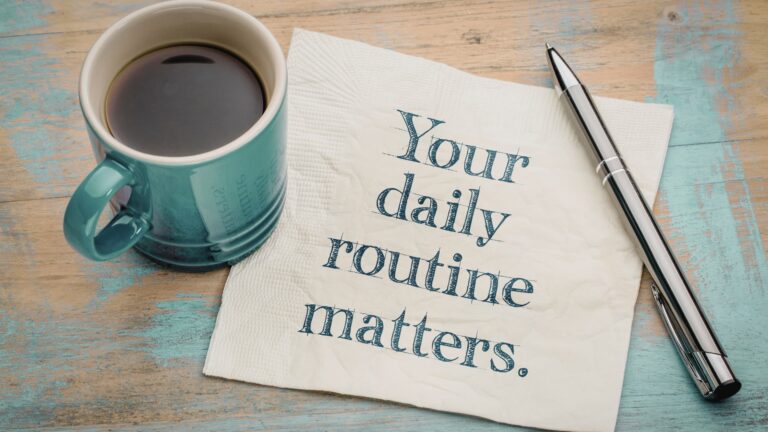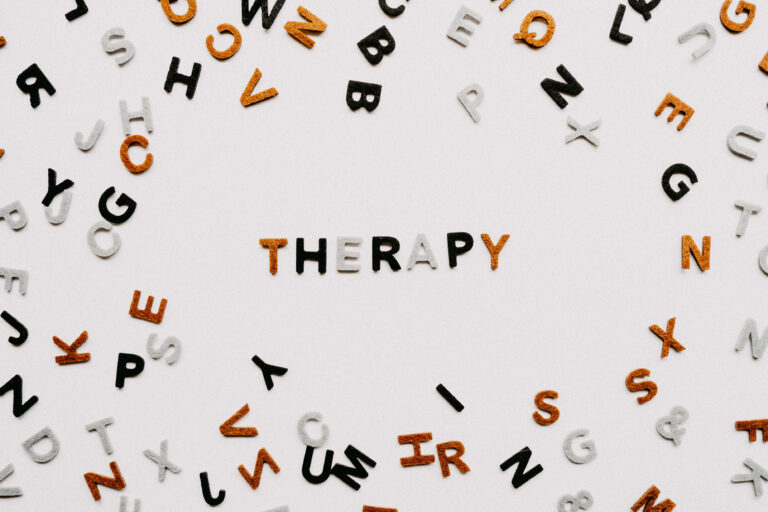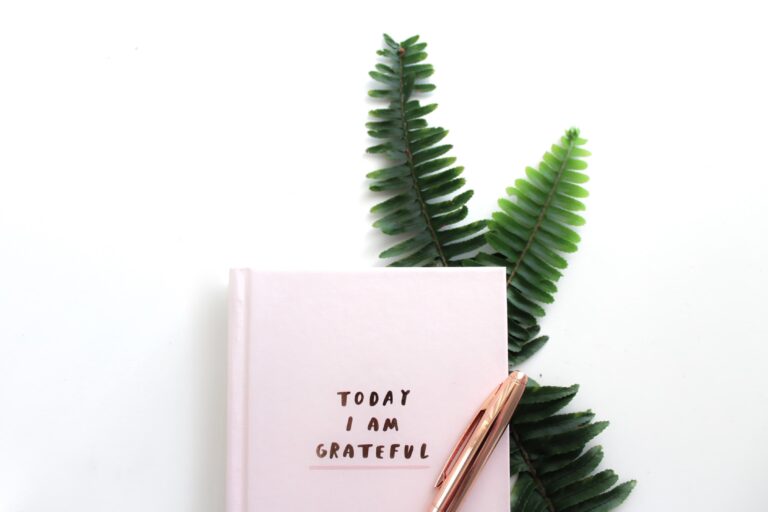Healing Strategies and How to Handle the Death Anniversary
Whether you call it a Death Anniversary, Angelvesary, or Spirit Day, the approaching date of your loved one’s death anniversary can be an overwhelming experience, filled with anxiety and apprehension.
We share our perspectives on the emotional rollercoaster leading up to this significant day in every widow’s life. In this episode we talk about:
- the anxiety, trauma, and anticipatory dread that often accompanies death anniversaries
- how the the actual day may not be as devastating as the thoughts and fears that consume our minds beforehand
- how we learned valuable lessons about self-compassion, setting personal boundaries, and embracing the freedom to navigate grief in a way that feels right for each of us
- and so much more
Listen to the Full Episode
Connect With Us
- Are you searching for emotional support, practical advice, and guidance on navigating widowhood? Join us in the Widow Squad membership.
- Follow us on Instagram and subscribe to our YouTube channel.
- Get all the widow wisdom you never knew you needed including exclusive content sent right to your email Inbox. Sign up here.
- Join our private Facebook group here.
Episode Transcript
Melissa: In our Widow Squad community, we often get asked or things come up, chats between our members about the death-iversary or what’s the other word for it? The spirit day.Yeah. And so this week, we want to talk about how you handle the death beforehand?
Do you plan something or how do you do that?
Kim?
Finding Signs and Meaning on the Death Anniversary
Kim: Well, the planner in me decided that I have to do something for the anniversary of my husband’s death. So what we typically do, the boys and I will go out for cheeseburgers. We do that for dinner because Mark liked cheeseburgers, so we do that to honor his memory.
But what I started doing from the get-go, like, from year one, was writing letters to him on the anniversary of his death every year. I would write letters about what we had been up to for that past year. I just started writing about things we did and feelings I had.
If anybody knows my background, I took over running my husband’s business before he died, but then continued running it after he died. So I would just say things about what was going on with his business and his customers and things like that.
The first couple of years were fine. And then things kind of started going downhill. Like my older son started getting in trouble and things just started getting real. Okay, so after the first couple of years after he died, I think the shock of everything wore off. But for all of us, my children included, and my older son started going off the rails. So I would write these anniversary letters to my husband. And they were bad. They were angry. I’m going to let you in on a little secret…I was reading them this morning and crying my flipping eyes out.
Because I was like, oh, my gosh, these letters were just, like, so intense.
But I wanted him to know what was going on. Like, I felt he needed to know. So I wrote letters for six years. And on the 6th year, I’m writing this letter thinking I don’t want to do this anymore. I don’t want to keep writing all these things that have been going on because I’m pretty sure he knows what’s been going on, right? In my mind, I’m like, why do I keep doing this and just blurting out all this horribleness that’s been going on with my kids in school and all these things that have been happening? So in that 6th year, I decided to stop writing.
And I’m going to read something that I wrote on Instagram because I had this feeling that I see a lot of signs from my husband. We can get into that on a whole other podcast, but I see lots of signs. I knew he was with me. I knew that I didn’t have to write these things out for him anymore. So I put a post on Instagram. I’m just going to read it to you because I think this kind of explains my feelings about his death anniversary also and why I don’t have to, at this point, continue planning a thing every year for that. Okay, so this is what I wrote:
It’s been 7 years since this very special person died and I’m both amazed how it can feel like yesterday and forever ago at the same time. Damn, I miss him.
I used to write letters to Mark on the anniversary of his death, as if I needed to tell him everything that’s been going on in his absence. ✏️
But in the last few years, I’ve been paying more attention to signs that he’s with us. I feel his presence now more than ever before. From the number signs I see every day, to the heart shapes we find in random places, to the coincidences that are just a little too coincidental. ❤️
For example, I had to get new tires on my van the other day when I thought I was just going in for a simple tire repair. Anxiety crept in because I don’t like the whole deal-making scenario I knew was coming. But after all the haggling and coupon-finding and customer appreciation discounts I asked for, we finally agreed on a price I was comfortable with. The sales guy was super nice and extremely patient with me and after it was all said and done, I asked him, “what was your name again?” and he said, “My name’s Mark. It’s been a pleasure doing business with you.”
I smiled, put my hands in prayer position and said, “thank you so much for all your help, Mark.” 🙏
And then I looked up and nodded because I know my husband was with me that day.
I don’t write Mark letters anymore because I don’t need to tell him how tall his boys have grown. He knows. Or how I’m still running his business. He knows. Or how happy I am to celebrate 5 years with my boyfriend, Tom and how we’re talking more about our future plans. Because Mark knows that too. I know he had a hand in bringing Tom and I together. And he’s happy that I’m happy.
Today is a sad day because it’s a reminder of all that I lost.
But I can’t look back and forget how much I found too.
Like, the strength inside me I never even knew existed. Or my warrior-like solo parenting skills. Or the benefits of vulnerability. I’ve even found opportunities that could only have appeared on my current path.
So now, whenever good things happen, I put my hands in prayer position, look up and thank my husband Mark. 🙏.
Because he already knows.So I don’t write him letters on his death anniversary anymore. My kids and I still go out for cheeseburgers, and I hope we’ll do that for the foreseeable future, as long as they’re near me and close by. But that is why I decided to stop doing those painful letters, as he already knows everything that’s going on in my life. And it’s not all painful anymore, too, by the way.
Melissa: Right.
Kim: Things have switched from really bad to really good. That’s what I would have to say about my anniversary experience.
Jen: Ugh, and you made both of us cry.
Kim: I’m trying not to cry, reading that, but honestly, it was like, we try so hard to do what we think they would want us to do or be who we think they would want us to be. And we are who we are, and it is what it is, and reality is reality.
So, I think in some of those letters, I was trying to make things sound better than they were. And then it went to how bad things really were, and then I just decided to stop doing that. But anyway, it’s been a rollercoaster like everybody else’s life is, but those are some of the things that I have done.
What about you, Melissa?
What are your death anniversary stories?
Embracing Change and Letting Go of “Shoulds”
Melissa: First, I want to just comment on yours. There’s a lot of “should-ing” on ourselves, like, I should do this or I shouldn’t do that, or all that stuff. And you really took the bull by the horns. Like, I don’t need to feel like I should do this.
Kim: No.
Melissa: Like, I’m not going to do this anymore. And I have a mic, and I would have dropped it because that was a mic drop moment. That was beautiful. So helpful. Really really helpful.
I still struggle with what I should do.
Kim: You don’t have to do anything but go ahead. But let’s just throw that out there. Nobody has to do anything.
Melissa: So Dave died on January 15, and then my son’s birthday was ten days later, and then Valentine’s Day. And then Dave’s birthday was three days after Valentine’s Day. So it was like, boom, boom, boom, all these big events happening.
So for the funeral service, his family and I had put together a video of pictures and music, and it was I don’t know, it was probably, like, ten minutes long that we showed in the gym. He was a teacher, so we had the service in the gym with the whole town and everything. So I have that video. And now I think I’m skipping ahead, but, anyway, for his birthday, which was just a month later, the boys, and I wrote notes, put them in balloons, and then something happened to my oldest son’s balloon. It didn’t quite go up, and it got stuck for a while. It was like, it should have been this beautiful balloon release thing, and it was just kind of not.
And then I thought, oh, that’s terrible for the birds. Probably shouldn’t do the balloon thing. I did keep copies of what they wrote, and they were very sweet, and I still have those notes.
So then flash forward to January 15. The following year, I just decided to do a Facebook post, and I reposted the video, and so I did that every year. I would do a Facebook post and do the video, and then it just kind of felt like something I should do. It’s kind of weird. Like, we acknowledge Dave’s death and my son, actually, when he turned 18, he got a tattoo on his wrist of in Roman numerals of the the date that he died.
I don’t know, it’s kind of a mishmash. I don’t really do anything. I mean, really, I know that it’s coming up right now. I have a pit in my stomach as I’m talking about it. I know that it’s coming up, but I don’t really do a big thing like, the boys and I might text a little bit or something like that, but we’ve never really like, oh, this is the day.
Kim: It’s hard sometimes when you start doing something, though, because then you feel like you need to continue doing it. Actually, it’s not a bad thing if you don’t do anything at all, because then there’s no reason to keep a tradition. But, if you start a tradition that you don’t like, you get to change it. You don’t have to stay with the same thing. But it’s hard to stop a tradition once you start it, so there’s that.
Melissa: Yes. the balloon debacle. I mean, that was probably a good thing. Like, we’re not going to continue that anymore because that didn’t work. Right.
Jen: Especially if there’s kids involved.
Melissa: Right.
Jen: Because then you do this monumental thing on this day, and then it kind of sets this precedent that for your kids, like, oh, well, we have to acknowledge the day.
Kim: That’s a good point. And the same thing with the birthday. Right? Did the kids have to do something? Do they have to acknowledge it? I don’t know, but what we’re doing or what I did was for me, I included my kids in the cheeseburger dinner. But again, they are close to adulthood now. They can decide what to do on those dates if they want to.
Jen: And it depends on how old they are and have that conversation with them, like, do you want anything today? Or what are you feeling? As they get into teenage years, they might just want to just breeze through the day, not acknowledge it.Kim: Sometimes they want to do it for you because they don’t want to disappoint you, their mother, right? And I try to be very open with my kids about stuff like that, too. Like, tell me what you think. What you feel, not what you think I want to hear, right? I try to make that clear because I know that they have those “should” on their shoulders, too, based on making me happy or doing what I want.
Jen: And don’t want to disappoint you. They want you to be happy.
Kim: And I might be doing it to make them happy. So neither one of us is happy doing something.
Melissa: Right. Yeah. I definitely let them set the tone for what we were doing. But personally, that’s what I would do to do the Facebook thing. And I’m like, I just don’t know if I want to draw that much attention to me or maybe I just don’t feel like getting a bunch of messages. So I really have not done that in probably four years or so. I might do it this year. I don’t know. I really love the video. I love the songs that we picked out. I love the pictures.
Kim: Well, come show it in the Widow Squad. If you don’t want to put it on Facebook, just put it in the squad.
Melissa: I never thought of that. That’s a great idea, Kim. Thank you.
Melissa: How about you, Jen? What do you do?
Changing Perspectives as Grief Evolves
Jen: My approach, especially thinking about that first one, was I took the approach of I want to breathe through this day. Like, I just need to get through the day. I’m not going to do anything special because I couldn’t handle it, honestly. And Claire was only three at the time, so she had no understanding of if I’m going to do any kind of balloon release or anything like that. I just didn’t really feel like I had it in me to have that conversation with her being so little.
There was so much anxiety and anticipation leading up to that day. And I know a lot of people can relate to this, but you think about the things that you were doing the year prior with your person. Like this day, three days before, this is what we were doing. Even like, conversations that we had. Because at the time, we were planning our first trip to Disney with Claire. So, I had this trip booked and planned, and it was November and he was killed in October. But we were talking details of the trip.
And I just remember sitting at the computer three days before he was killed and going over our plans, our itinerary. What were we going to do? We were so excited. We were so excited to bring her to Disney. And just that sparkle in his eye too. And then your whole life changes. So, I was just those days leading up to that first anniversary day, those were my thoughts. I was like, God, how my life has changed. A year ago, this is what we were doing. We were going to go to Disney. We were going to do this. We had all the plans, all the things that we had talked about that were some scheduled and some not. But we had plans. We had plans. It was just so there was so much hurt and there was so much pain leading up to that day. And then again with the anxiety because I struggled with anxiety. Just wretched anxiety. And sleepless nights, every night, I couldn’t sleep.
But the actual day when that came was, uh, I kind of had a breakdown in the morning. I know I dropped Claire off at her little daycare school and I think she just had a half day that day. But it was me just crying. And I know I got outside because that always helps me get some fresh air, take a walk. Just kind of think about what’s happened and how freaking unbelievable it was, that this is the point that I am in my life right now. Just kind of like, a what the hell is my life kind? Kind of day. I can’t say that it was like, good memories because that first year is freaking brutal.
It’s horrible.
I remember in the afternoon, I had picked up Claire from school, and I said, you know what, we’re just going to have a chill out afternoon. We went for a walk on the beach. I grabbed a beer. I think I said a little toast because it was a beautiful sunset. It was beautiful. And I was like, I’m going to sit here and just watch the sun go down. And I did.
We went for a walk. Claire had a little sucker, I had my beer. She started to get tired. She fell asleep. And so I picked her up and I carried her and I was holding onto her and her little sucker fell out of her mouth and it was like, hanging on my shoulder. And I’m just holding her and walking and thinking and staring at the sunset. And then I got back and sat down in the chair. She was laying on my chest and sleeping. And I watched the sunset. And I think I did a little cheers to him and just kind of kept to myself.
I honestly didn’t want to talk to anybody, yet I wanted other people to acknowledge it and talk to me, even though I didn’t want to talk to them.
I want people to reach out to me, but I don’t want them to reach out to me because I don’t want to respond. And I’m sorry, but I guess they just need to understand that I’m not going to text you back and I’m not going to email you back right now. But I really appreciate people reaching out to me on that day.
That part was not easy either, because again, it’s like you have friends and family that are reminding you of the reality of what’s happened. And then as years went by, those comments and acknowledgement from other people, they just start to fade away. And that, I found, has become hurtful. It’s been ten years for me, you know? I mean, it’s been years, but it’s still when I get text messages or emails from family and friends on that day, it’s like, thank you.
Melissa: Yeah, thanks for acknowledging.
Jen: Thank you for remembering him. Thank you for remembering me.
Kim: Do you guys do that now? I do that now with people who have had loved ones die, which I never did before. Because you don’t know what you don’t know, right? I was not a good friend before I became a griever, now I’m a better friend to grievers because of my experience. So I do that now. I do put notes on my calendar to contact people on death anniversary dates and just let them know that I’m thinking of them. Not that I want to call back, not that we have to talk, right. Just I’m thinking of you.
Melissa: And it’s nice to be acknowledged and not have to go the extra step of having to acknowledge their acknowledgment. I’m thinking of you. And then I’m not expecting anything in return.
Kim: Yes, this is the beauty of texting, where before texting, you would have to pick up a phone. And you don’t have to pick up a phone. You can just let people know with a quick, easy peasy text.
Managing the Anxiety Through Different Seasons of Grief
Melissa: You mentioned anxiety of thinking about the upcoming day and I think that’s worse. Like, that first death anniversary or Spirit Day, anticipating what’s this going to be like? What’s going to happen? Is all hell going to break loose. That’s what I was like, oh my god. And I had so much anxiety, like, the couple of weeks before. And then when the day came, it’s like, this is not as bad as what was going on in my head. I will live through this. I was really working myself up.
Jen: That has to do with the trauma that we’ve been through. Because me looking back on the day that he was killed, it was so traumatic. And I’m thinking about the feelings that I was feeling on that day, that I’m going to feel that exact same way again on this one year. Thinking back to it, I’m going to feel all those things again. And that’s the anxiety part of it that kicks in. It’s like that pain. All of that is going to come rushing back. All of it’s going to be here again. It’s going to be here. We also talk about the day after the crash that happens sometimes the day after, because you had all this build up for that day. And then you get to the day after, and then you’re just like, oh my gosh. It’s kind of like, okay, I made it.
Kim: Yeah. I made it. I survived. Well, Mark died on February 2, so I always say my year, my new year doesn’t start until February 3. I just feel like everything starts new or changes after February 2 because I’m still anticipating, even this many years later, you still have those seasons of grief leading up to the death anniversary. And I think my season starts in November and ends February 2 because of all the holiday stuff that goes on too. I still have that anticipatory feeling of dread before that date, and I don’t think that’ll probably ever change. It might be lighter in some years, heavier than others. It just depends on what else is going on in your life.
Melissa: But it alters your calendar. That is so true. I’m the same. Everything happens from, like, the holiday season, November to February 17, because that’s his birthday, February 17. Our wedding anniversary is in December. Yeah, you know, Christmas and January he died. Then my youngest son’s birthday is ten days later. And then we will have another episode on Valentine’s Day. Yeah, about that. Right, exactly. Um, that hits, and then his birthday, and it’s like, okay, I moved through these three months. My calendar starts. Yeah, it does adjust your calendar.
Well, anything else to add about this topic? This has been a good one.
Kim: Well, just like, I think that you don’t have to do anything at all. I mean, in my planner brain, I thought I had to do something. Like, I had to make a thing. I had to do a thing so that I would be acknowledging whatever was going on. That’s not necessarily true. And people ask me, even to this day, especially when he first died, did you call his parents on the day that he died? I said no. He was the only child. I’m still very close to his mom and dad. And people would say, did you call his mom? And I said, no. And they were kind of surprised. Why wouldn’t you call her on the day? Because I’m grieving too. I am not responsible for everybody else’s grief and making their grief easy or more palatable. I’m grieving too. And she didn’t call me.
We didn’t have to talk on that day. We acknowledged it in our own ways. But it is not necessary to have to make other people feel better or whatever you want to say about that date. Brothers or sisters or whatever. So we’ve never talked on the death anniversary date, and I don’t plan to at any time. So there’s that too. Just again, it goes back to doing what is comfortable for you and what makes you feel okay. And that can change.
Melissa: Yep. Get rid of all those “shoulds.” Quit “shoulding” all over yourself.







